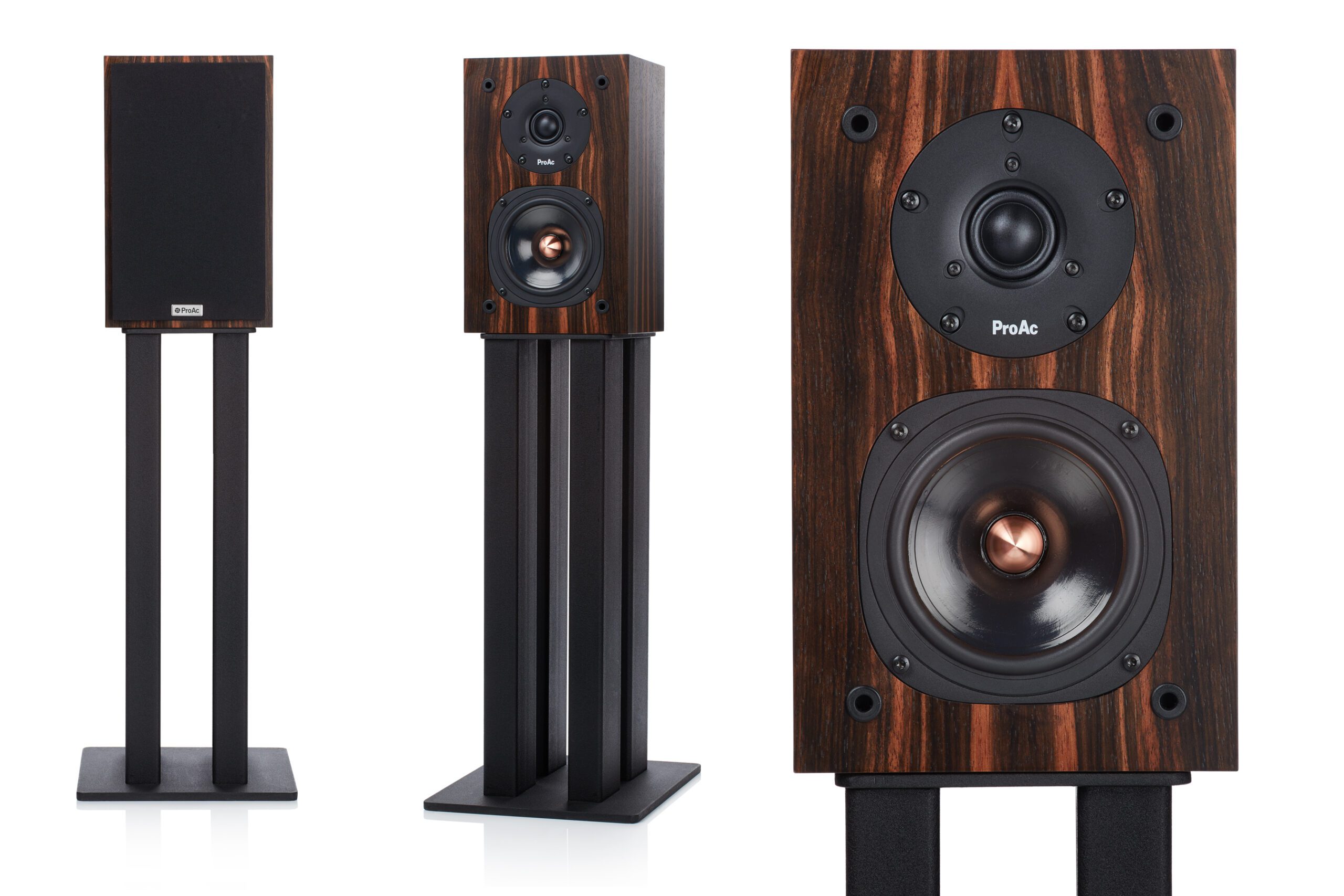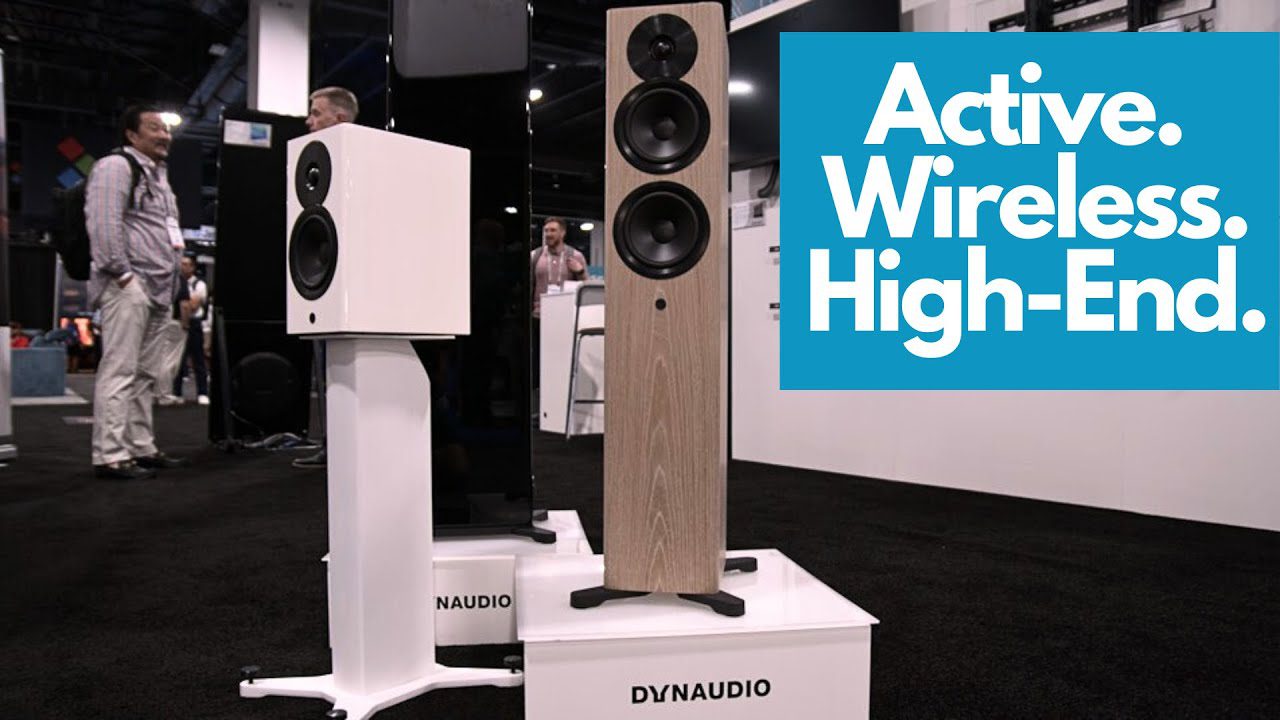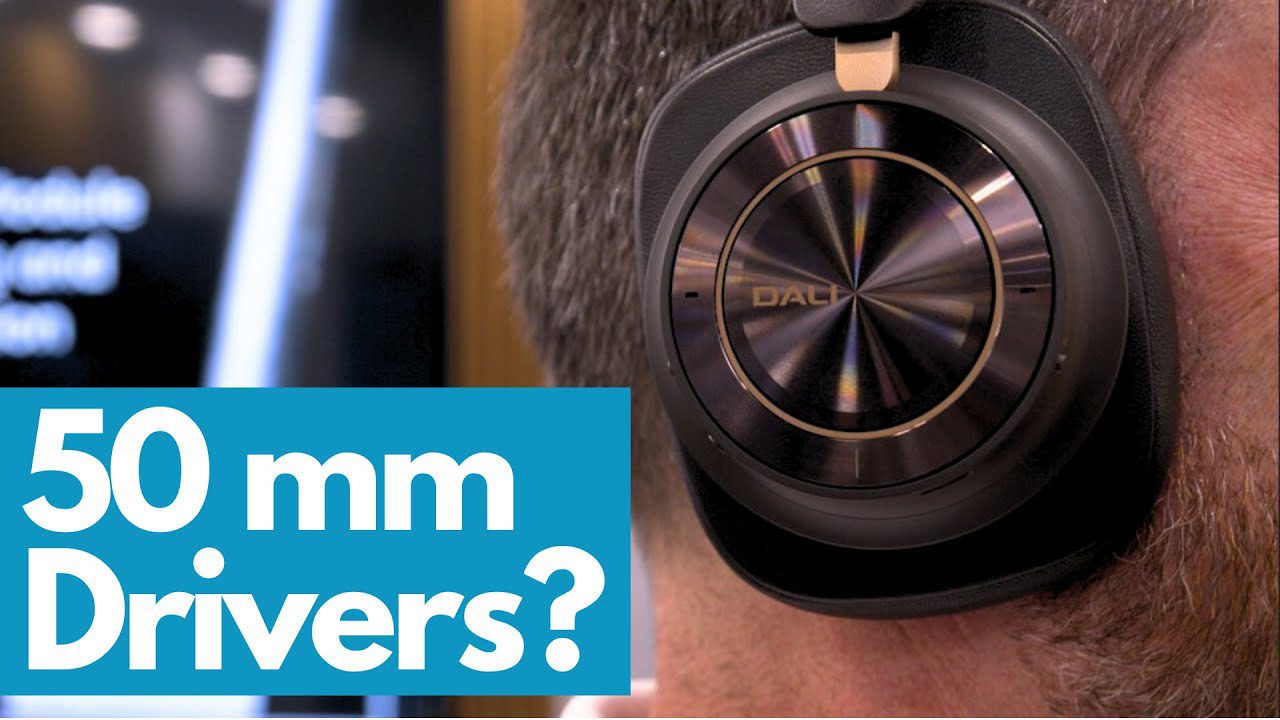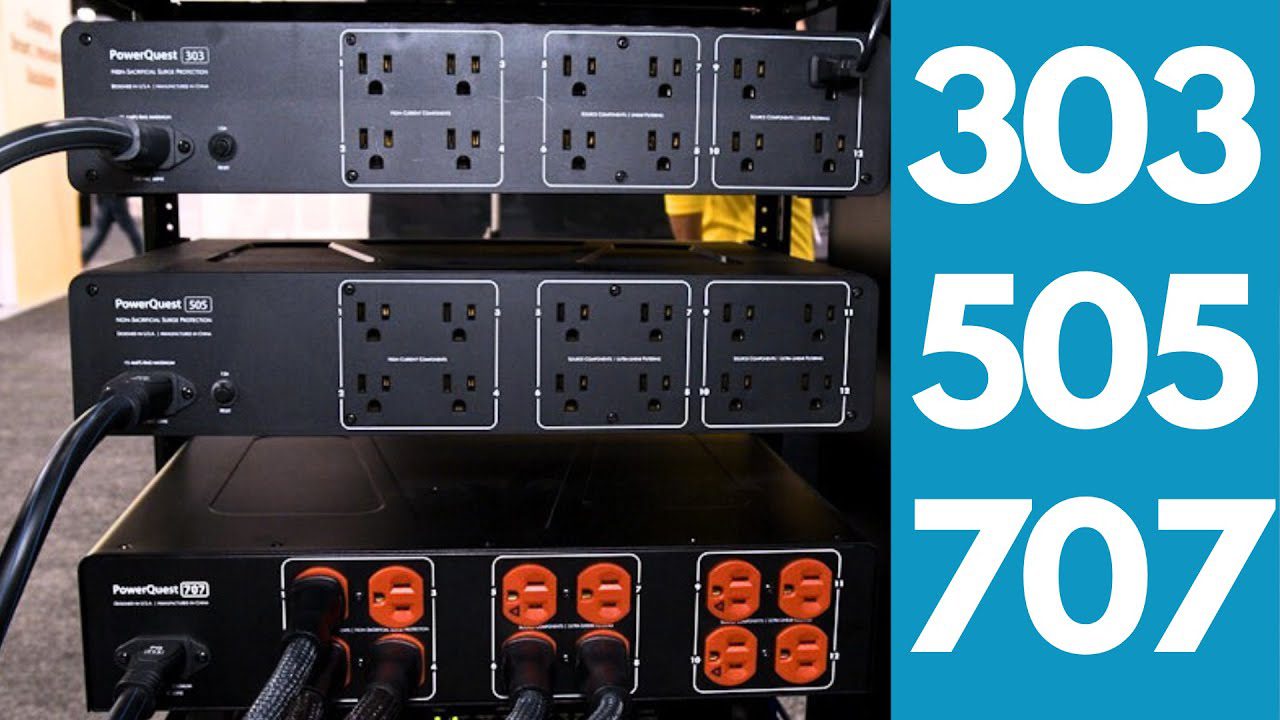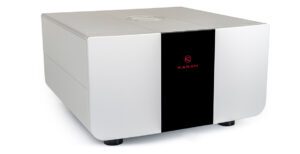
Every Stax ‘earspeaker’ is an electrostatic design. Every electrostatic needs a specialist, dedicated high-voltage amplifier (Stax calls it an ‘energiser’). Stax makes more top-end earspeakers than it does energisers, so there’s call for a really top-notch energiser from the brand to match the SR-009 and the new SR-009s. The SRM-T8000 is that energiser.
Two years in the making, the hybrid SRM-T8000 is the first of what Stax classes as a new ‘T’ series energiser. Instead of relying on a combination of FET input stage running in Class A and valve output stage using 6FQ7 valves, the T8000 features a pair of 6922 double-triodes in the input stage and a solid-state output stage. This form of hybrid amplifier circuit is commonplace in traditional two-channel amplifiers, but has been harder to utilise in Stax energisers because of the high impedance of an electrostatic transducer.
The valve circuit board is independent to the rest of the circuit, and the valves themselves are screened and damped to reduce vibration and microphony effects (while the more sceptical will dismiss the impact of microphony on solid-state electronics, such properties are readily demonstrable with valves). The one problem here is those valve cans will limit the amount of tube rolling for those who enjoy such things: no valves significantly physically wider or narrower than the supplied models. However, the anti-vibration goals extend to the feet, which are made of an aluminium ring filled with an unnamed but grippy ‘vibration-proof compound’, and the volume pot, which is internally shielded.

The big ‘first’ for the SRM-T8000 – which goes some way to explain the reason why this energiser is roughly twice the width of its counterparts – is its use of a large-capacity toroidal transformer, mounted on a non-magnetic aluminium chassis. It has both balanced and single ended inputs – balanced sounds best.
The T8000 has a difficult gap to fill, as it’s one that is notionally at least already filled by several well respected third-parties. Stax energisers have a reputation among the electrostatic cognoscenti for being the default choice but shopping around is a worthwhile exercise. Which means a truly top-end Stax model needs to excel. And the SRM-T8000 certainly excels when it comes to midrange detail. Every scintilla of information, especially in that all important midrange, in a recording is presented here, in a precise and orderly manner. It’s tough on recording engineers, in a good way: if the engineer was ‘winging it’ and the mix isn’t perfect, every drop-in, and every slightly fuzzy panning instrument placement is on show. On the other hand, those unsullied recordings made with minimal equipment are wonderful.
This combination of detail and stereo imaging is, for many people, the Holy Grail of Audio Listening. It’s just you and the music with seemingly nothing in the way. Some will prefer a more earthy and visceral sound, however, and the T8000 is merely ‘good’ at this aspect of performance. That being said, the T8000 is not gutless and there is no obvious weakness on the T8000’s part; it’s that there are more immediately dynamic and ‘meatier’ sounding devices available from the aftermarket. None of them, it must be said, will save the listener any money in the process and none of them have the same degree of detail retrieval. But if your musical tastes run all the way from Led to Zep, the T8000 might not twang your strings. On the other hand, if it’s the replay of string sections you are after, then the T8000 makes a good case of being the most detailed information retreiver on the market.

The SRM-T8000 is the best energiser Stax has ever made, and if resolution and imaging are your audio ‘triggers’, then this is also the best energiser you can get for a Stax. Especially if you have one of the better Stax earspeaker systems, like the SR-009. Those who want something a little gutsier will still admire what the T8000 can do, but careful shopping around might net them something more in their line of sight. But even those listeners might want to stick with it; I found the T8000’s ability to ‘listen into’ a recording more and more beguiling the more time I spent with it plugged between DAC and headphones. Give it a go!
TECHNICAL SPECIFICATIONS
Frequency response: 1Hz–115kHz
THD: <0.01% @1kHz per channel
Gain: 60dB
Rated input level: 100mV/100V
Maximum output voltage : 470V r.m.s./1kHz
Input impedance: Unbalanced 50kΩ/ Balanced: 50kΩ×2
Analogue Input : RCA ×2, XLR ×1
Headphone output : Stax PRO bias output ×2
Volume control bypass: Allows the use of an external preamp
Vacuum tube: 6922 × 2
Power consumption: 95W (58W when idle)
External dimensions: 320(W)×103(H)×395(D)mm/12.6″ × 4″ × 15.6″
Weight: 7.3kg/16.1 lbs
Price: £4,395/$5,800
MANUFACTURER INFORMATION
STAX Limited
3798-1 Shimonanbata,
Fujimi-shi, Saitama-Ken, Japan 354-0004
Distributed in the UK by
Symmetry
Tel: +44(0)1727 865489
Tags: FEATURED
By Alan Sircom
More articles from this authorRead Next From Review
See all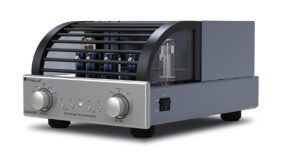
PrimaLuna EVO 100 phono preamplifier
- Apr 22, 2024
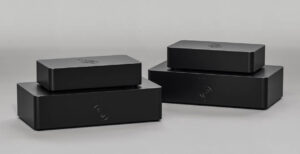
Reiki Audio SuperSwitch Master Pro + Servant Pro
- Mar 27, 2024
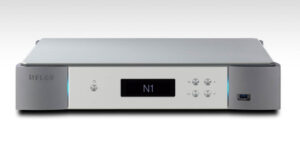
Melco Audio N1-S38 music server
- Mar 27, 2024

